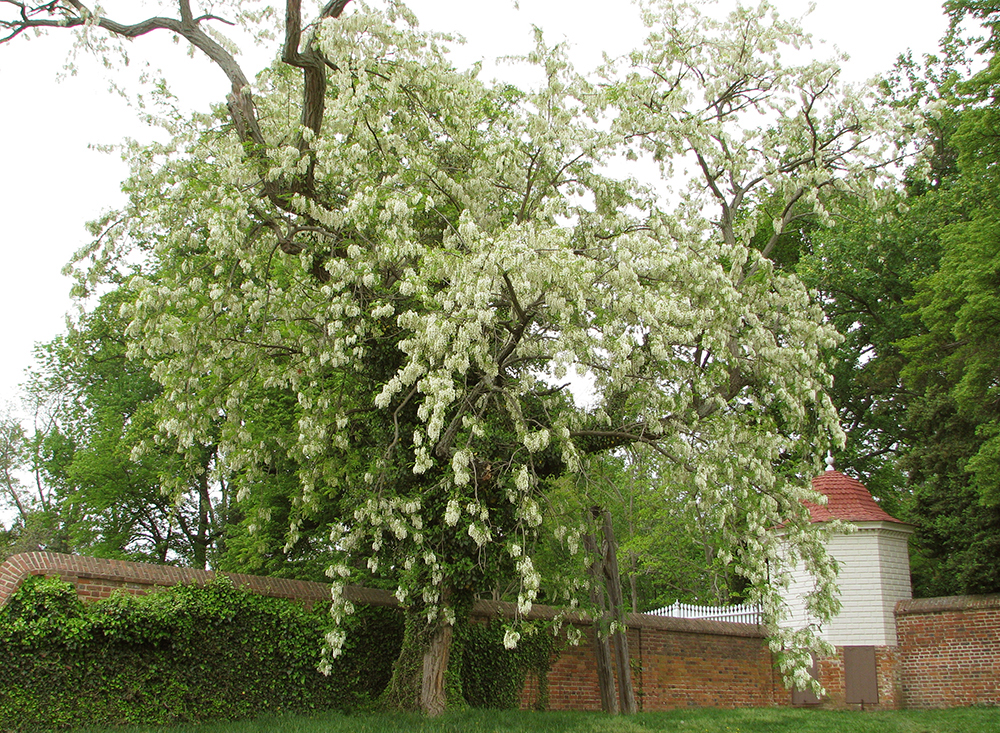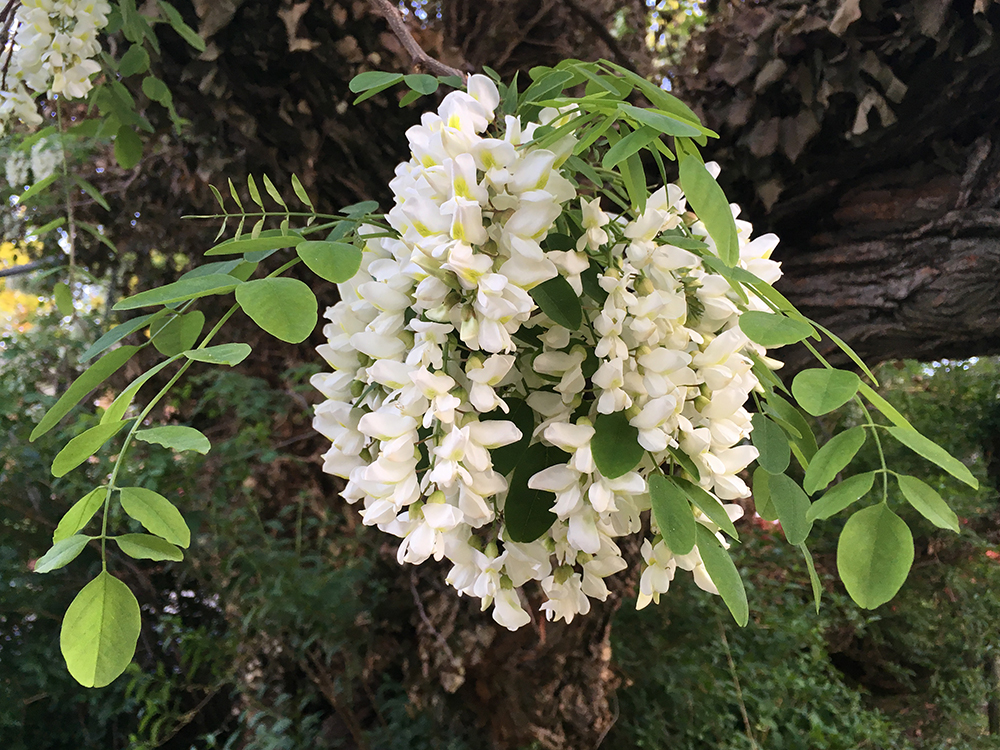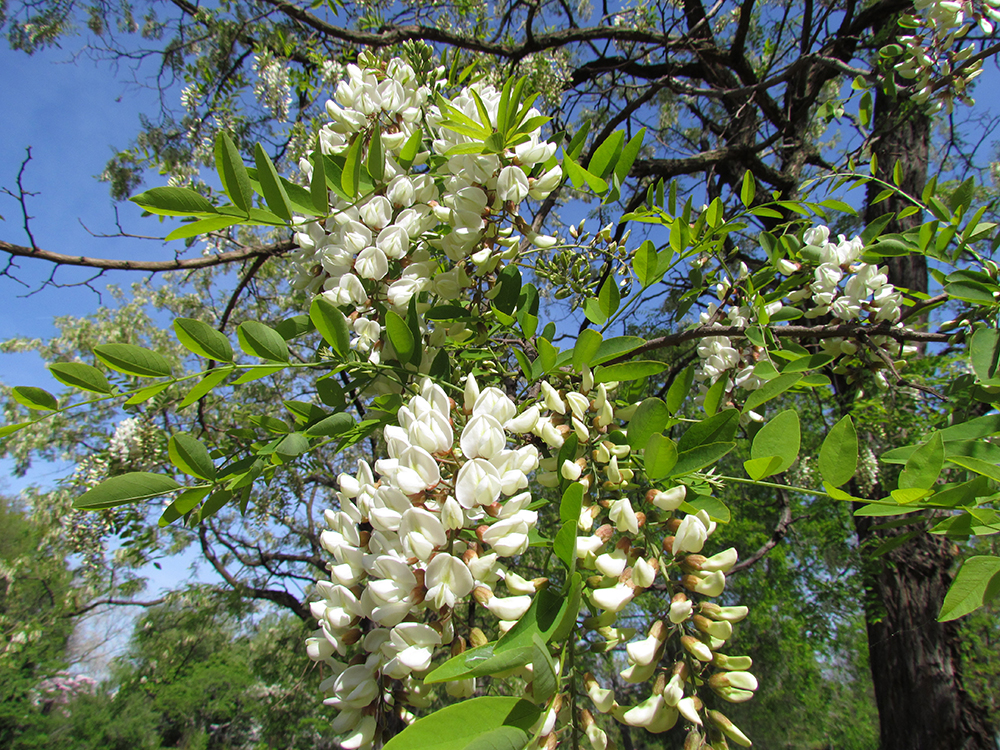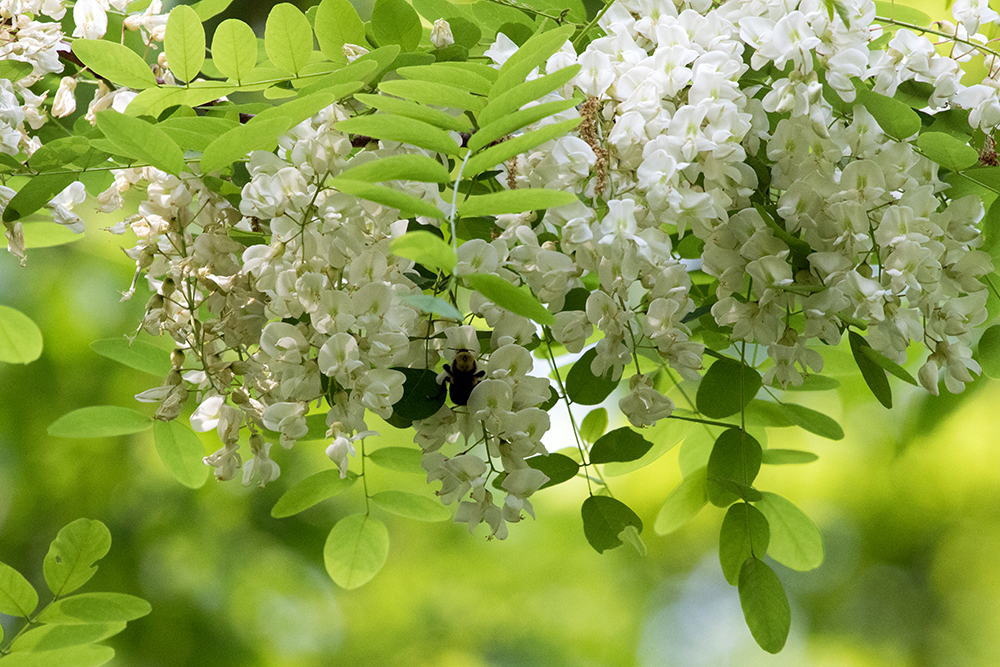Black Locust
Robinia pseudoacacia
native
Other Names:
False Acacia
Black Locust is a native tree found throughout Virginia and the lower 48 states. Its wood, among the hardest of any Northern American tree, is durable and resistant to rot, making it prized for furniture, flooring, paneling, fence posts, and small watercraft. It has nitrogen-fixing bacteria in its root system, so it can grow in poor soils and is an early colonizer of disturbed areas. It is a major honey plant in the eastern United States. Before he became president, Abraham Lincoln spent a lot of time splitting rails and fence posts from Black Locust logs. Since 1900, the value of Black Locust has been practically destroyed in many parts of the United States by locust borers; young trees grow quickly and vigorously for a number of years, but the insects cause them to become stunted and diseased, and they rarely live long enough to attain commercial value. Were it not for these insects, Black Locust would be one of the most valuable timber trees that could be planted in the northern and middle states.
Identification Tools
![]() Illinois Wildflowers
Illinois Wildflowers
![]() Friends of the Wildflower Garden
Friends of the Wildflower Garden
![]() Go Botany
Go Botany
Ranges




Return to the Index
